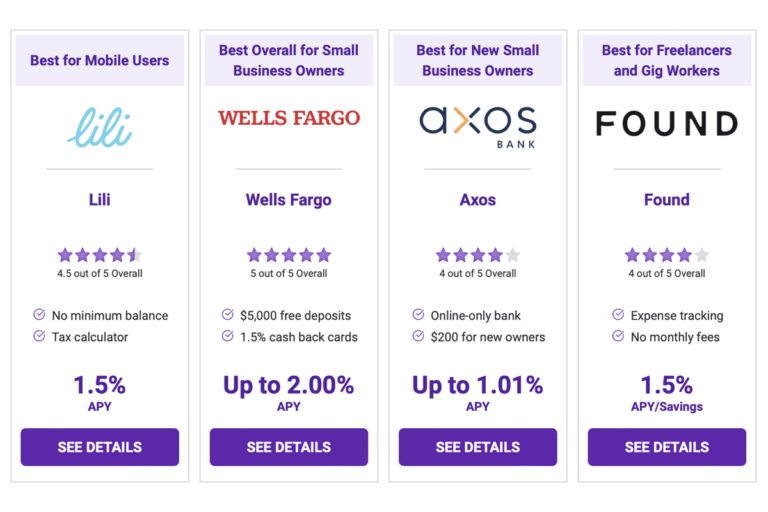Finance Tools for Ecommerce Businesses: Empowering Growth and Streamlining Operations
Ecommerce businesses operate in a fast-paced and highly competitive environment, where managing finances efficiently is critical to success. From tracking sales and inventory to handling payments and ensuring tax compliance, finance tools for ecommerce businesses can significantly streamline operations and improve financial decision-making. These tools not only help ecommerce owners maintain cash flow and optimize profit margins but also provide valuable insights that drive growth. In this article, we will explore the best finance tools available to ecommerce businesses and how they can help you manage your finances effectively, ensuring your business stays on track and continues to thrive in the digital marketplace.
Accounting Software: The Backbone of Ecommerce Financial Management
One of the most essential finance tools for any ecommerce business is accounting software. These platforms help automate bookkeeping, track revenue and expenses, and ensure accurate financial reporting. Tools like QuickBooks Online, Xero, and FreshBooks are popular choices for ecommerce businesses, offering easy integration with payment systems, inventory tracking, and sales data. These accounting tools help you create professional invoices, manage taxes, and produce financial statements, saving you time and reducing the risk of errors. By automating these critical processes, ecommerce owners can focus more on growing their business and less on administrative tasks.
Payment Processing Solutions: Secure Transactions and Efficient Cash Flow
Payment processing is another critical aspect of ecommerce financial management. Secure, efficient payment systems ensure that your customers can make purchases easily while maintaining a steady cash flow for your business. Platforms like Stripe, PayPal, and Square are widely used in the ecommerce space, providing seamless payment processing for both online and mobile transactions. These tools offer integration with your ecommerce website, allowing you to accept credit card payments, manage subscriptions, and handle international transactions with ease. They also provide detailed analytics, enabling you to track revenue, monitor payment history, and address any discrepancies quickly.
Inventory and Order Management Tools: Control Your Cash Flow
For ecommerce businesses, managing inventory and orders is a crucial element of financial planning. Overstocks or stockouts can result in lost sales or excess storage costs, negatively impacting profits. Using inventory and order management tools like TradeGecko, Odoo, or Cin7 can help streamline these processes, ensuring you always have the right products available without tying up unnecessary capital in inventory. These tools allow you to track inventory in real-time, automate reorder processes, and analyze sales trends to forecast demand more accurately. By optimizing inventory management, ecommerce businesses can reduce costs and improve cash flow, while also ensuring customer satisfaction through timely deliveries.
Tax Automation Tools: Simplifying Compliance and Saving Time
Tax compliance is often a complicated and time-consuming task for ecommerce businesses, especially those that sell across state or international borders. Sales tax rates can vary widely, and staying on top of them can be overwhelming without the right tools. Avalara, TaxJar, and Vertex offer tax automation solutions that help ecommerce businesses automatically calculate, collect, and remit the correct sales taxes based on the location of the buyer. These tools integrate with your ecommerce platform, ensuring that your business stays compliant with tax laws while minimizing the risk of costly errors. Tax automation also reduces the time spent on manual calculations, freeing up resources for other important business functions.
Financial Analytics Tools: Gain Insights and Make Data-Driven Decisions
In addition to basic financial management, ecommerce businesses benefit greatly from financial analytics tools that provide deeper insights into business performance. Tools like ProfitWell, Kissmetrics, and Google Analytics can track key metrics such as customer lifetime value (CLV), return on investment (ROI), and conversion rates. These platforms enable you to analyze spending patterns, sales trends, and marketing performance, helping you make more informed decisions. Whether you’re looking to optimize your ad spend, adjust pricing strategies, or identify new revenue opportunities, financial analytics tools provide the data needed to improve profitability and guide your business’s growth.
FAQs
- What is the best accounting software for ecommerce businesses? Popular accounting software options for ecommerce businesses include QuickBooks Online, Xero, and FreshBooks, which help automate bookkeeping, manage taxes, and track expenses.
- Why is payment processing important for ecommerce businesses? Payment processing tools like Stripe and PayPal ensure secure transactions, manage cash flow, and provide valuable analytics, making it easier to handle online payments and subscriptions.
- How can inventory management tools help with finances? Inventory management tools help control cash flow by reducing overstock or stockouts, improving order fulfillment, and forecasting demand to avoid excess inventory costs.
- How do tax automation tools help ecommerce businesses? Tax automation tools calculate, collect, and remit sales taxes automatically, ensuring compliance with local tax laws and saving time on manual calculations.
- What are financial analytics tools and how do they benefit ecommerce businesses? Financial analytics tools provide insights into key metrics like ROI, CLV, and sales trends, helping ecommerce businesses make data-driven decisions to optimize performance and increase profitability.

